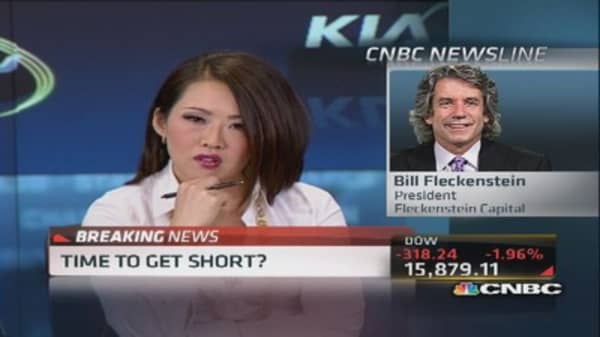The stock market selloff last week was fueled in part by worries that big companies are going to have a hard time keeping their profits growing as the Federal Reserve starts shutting down its massive money pumps.
That's news to a panel of top business economists, who insist profit growth will remain on track, according to a survey released Monday by the National Association for Business Economics.
"The outlook for 2014 is strengthening," NABE President Jack Kleinhenz, said in a statement accompanying the release. Profit gains are expected "regardless of any changes in monetary policy."





